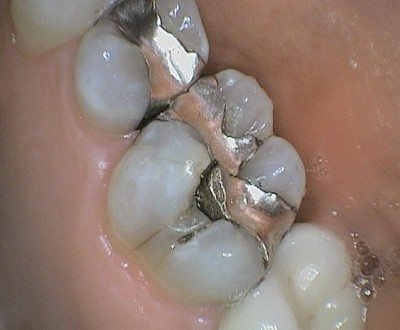Not every problem we have in our mouth occurs because we don’t clean our teeth properly, and cracked teeth is one of these problems.
If we buy a new car and never maintain it, how long will it last? I imagine within 5 years we might start to have some major issues that could be expensive to fix. If we properly care for and maintain the car, it would no doubt be a lot longer before any major issues arise.However, if we drive it recklessly and wrap that care it around a pole, being well maintained isn’t going to stop the damage!
The protective enamel that covers our teeth is extremely hard and strong and does a pretty good job of protecting our teeth, but like most things, if you hit them hard enough or enough times in the right spot it can break. While some cracks or fractures are the result of unavoidable accidents, we can reduce the risk of others. While there are obviously always exceptions, cracks or fractures are usually the result of one of 2 scenarios.

- Single heavy trauma event. To use the earlier analogy, this would be like having a car accident. This could be something like being punched in the mouth, biting on an olive pit, orfaceplanting our front teeth into some concrete. The cause is usually pretty evidentbut is often hard to anticipate or prevent.Things like wearing a mouthguard, cutting olives in half before putting them on a pizza, and avoiding reckless behaviour (like trying to do a backflip off a stair-rail) will help to minimize these types of accidents. In these traumatic cases, often the cracks or fractures are evident right away and would need to be assessed by a dentist to determine the best course of treatment.
- Multiple mild or moderate trauma events. To continue the car analogy, this could be things like driving on shot suspension, always grinding the gears and riding the clutch, or ‘red lining’ the car whenever it’s in drive. Dentists will regularly hear people blame a piece of chocolate, a nut, a piece of lettuce or bread for their broken tooth. While it may have been the last straw, it’s likely that the damage in these instances was done before that last bite. The trauma in these cases is more likely things like clenching habits, grinding habits, steep cusps, uneven bite, overloaded teeth, chewing on ice, and things of this nature. While fillings don’t usually directly cause cracks, there is more inherent weakness in these teeth, especially with large metal fillings, making them less resistant to cracks and fractures.
While not always possible to avoid, these cases of cracks and fractures are far more preventableso long as the habit or compromised situation is identified and addressed. This could involve the use of a splint to limit night-time grinding, removal of stress or stress relieving activities, changing habits such as chewing on ice and clenching, adjusting teeth or previous fillings, replacing missing teeth, crowning heavily compromised teeth and so on. Regular appointments with your dentist can help to identify potential issues and hopefully treat them before disaster strikes. The severity of cracks can vary dramatically, and so potential treatment is best discussed on a case by case basis.
If you suspect you might have a crack or fractured tooth, or would like more information, please don’t hesitate to give us a call on (07) 3379 1328
